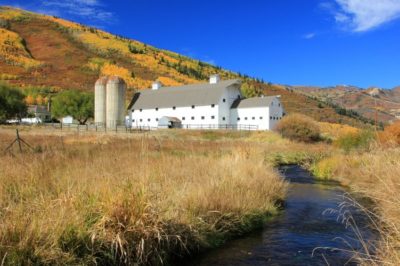 New water way rules proposed by the EPA could devastate homesteaders, farmers, ranchers and other rural property owners, US Senator John Thune (R-South Dakota) says.
New water way rules proposed by the EPA could devastate homesteaders, farmers, ranchers and other rural property owners, US Senator John Thune (R-South Dakota) says.
The agency’s attempt to expand its jurisdiction over wetlands and water ways could make it impossible or prohibitively expensive for property owners to make use of their own land, Thune says.
Under the current rules the Clean Water Act only applies to large streams and rivers. The Environmental Protection Agency wants to rewrite the rules so the Act applies even to seasonal streams and creeks, and also to wetlands that are near protected rivers and streams.
Critics like Thune charge that this will give the agency the power to fine property owners who build stock ponds, drainage ditches and even small hydroelectric systems without a permit. They also say it will expand the EPA’s power over private property and entangle regular everyday citizens in lengthy bureaucratic paperwork.
“This proposed expansion has real consequences for … property owners,” Thune said. “Direct and indirect costs would result from additional permit application expenses, mitigation requirements, and environmental analysis, and violating these requirements could cost farmers, ranchers, homeowners, and businesses thousands of dollars per day.”
Fines and Bureaucratic Paperwork Ahead?
Thune and some of his colleagues wrote a letter to EPA Administrator Gina McCarthy on May 8.
Discover The Only Way Back To True Freedom And Liberty In America…
“We have reviewed the proposed rule that you signed on March 25th and have concluded that the rule provides essentially no limit to the CWA jurisdiction,” the letter read.
“Additional and substantial regulatory costs associated with changes in jurisdiction and increased permitting requirements will result in bureaucratic barriers to economic growth, negatively impacting farms, small businesses, commercial development, road construction and energy production, to name a few.”
 The United States Senate voted 52 to 44 to reject an earlier EPA attempt to expand its powers over bodies of water, the letter said.
The United States Senate voted 52 to 44 to reject an earlier EPA attempt to expand its powers over bodies of water, the letter said.
Farming Practices Banned, Too?
The letter includes a list of charges against the EPA including:
- The EPA failed to consult with governors and state governments before proposing the rule change. He cited a letter from the Western Governors’ Association that alleged the regulation infringes on state authority.
- Many common farming practices could be banned under the rule. The Corps of Engineers plans to exempt 53 farming practices but Thune and the others said there are many more farming practices that won’t be exempt.
- Farmers will need to get permits from the EPA and the Corps of Engineers in order to engage in everyday farming practices.
“The threat of ruinous penalties for alleged noncompliance with the CWA is also likely to become more common given the proposed rule’s expansive approach,” the legislators predicted. “For example, the EPA’s disputed classification of a small, local creek as a ‘water of the United States’ could cost as much as $187,500 per day in civil penalties for Wyoming resident Andrew Johnson. Similar uncertainty established under the proposed rule will ensure that expanding federal control over intrastate waters will substantially interfere with the ability of individual landowners to use their property.”
“This is despite the Supreme Court consistently recognizing that Congress limited the authority of the EPA and the Army Corps of Engineers under the CWA,” the legislators said.
Sign up for Off The Grid News’ weekly email and stay informed about the issues important to you
 Off The Grid News Better Ideas For Off The Grid Living
Off The Grid News Better Ideas For Off The Grid Living



